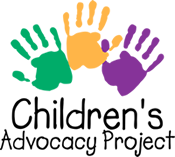You think you have given your children all of the back-to-school essentials they need for a successful school year. You have filled their backpacks with new pencils, notebooks, and even Kleenex, but have you given them the tools they need for proper body safety?
Child sexual abuse happens across ALL socioeconomic, educational, racial, and cultural groups.
No matter the age of your child, there are appropriate ways give your children the tools they need to help keep themselves protected:
-
Teach children accurate names of private body parts.
- Avoid focusing exclusively on “stranger danger.” Keep in mind that most children are abused by someone they know and trust.
- Teach children about body safety and the difference between “okay” and “not okay” touches.
- Let children know that they have the right to make decisions about their bodies. Empower them to say no when they do not want to be touched, even in non-sexual ways (e.g., politely refusing hugs) and to say no to touching others.
- Make sure children know that adults and older children never need help with their private body parts (e.g., bathing or going to the bathroom).
- Teach children to take care of their own private parts (i.e., bathing, wiping after bathroom use) so they don’t have to rely on adults or older children for help.
- Educate children about the difference between good secrets (like surprise parties—which are okay because they are not kept secret for long) and bad secrets (those that the child is supposed to keep secret forever, which are not okay).
- Trust your instincts! If you feel uneasy about leaving a child with someone, don’t do it. If you’re concerned about possible sexual abuse, ask questions.
Sexual abuse can happen to children of any race, socioeconomic group, religion or culture. There is no foolproof way to protect your child from sexual abuse, but there are steps that we can all take to help reduce the risk. If something does happen to your child, remember, the perpetrator is to blame, not you or your child.
The best time to talk to your child about sexual abuse is now.

